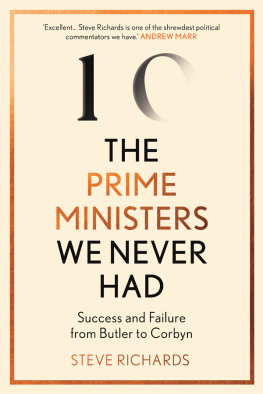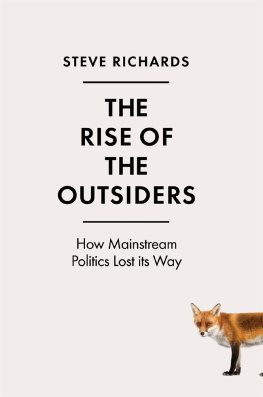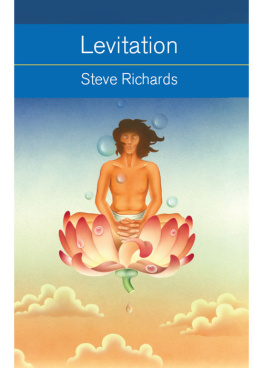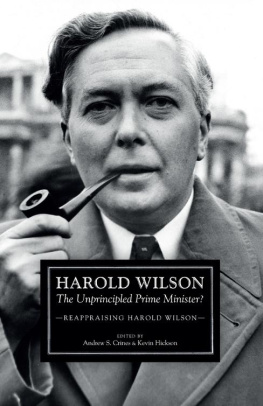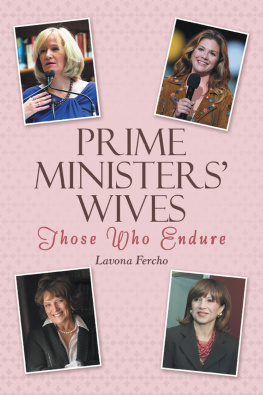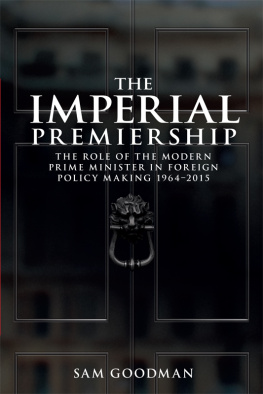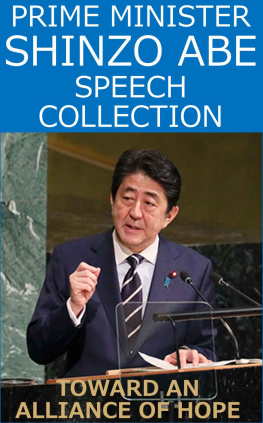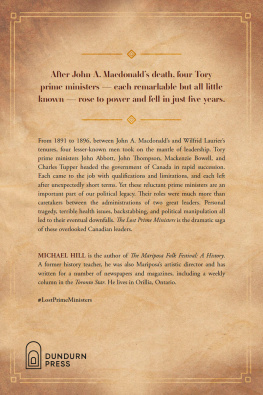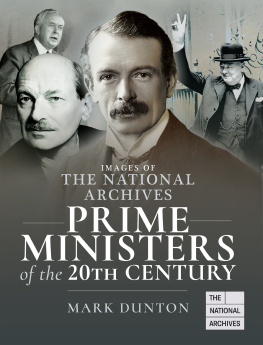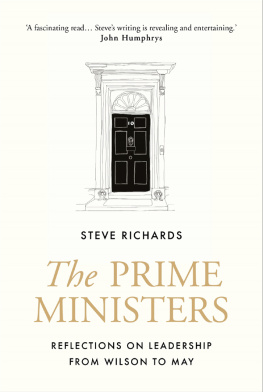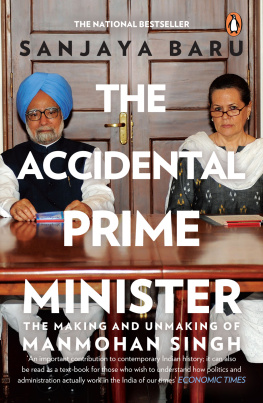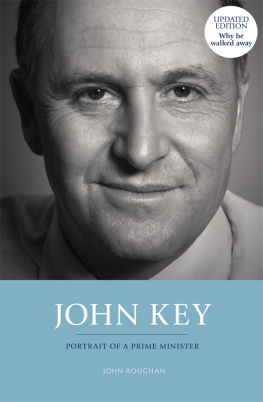Contents
Guide
THE PRIME MINISTERS
WE NEVER HAD
Prime ministerial politics is a rare example of a field in which the losers are often more interesting and more impressive than the eventual winners. Steve Richards deserves applause for noticing this, and exploiting it with great empathy and close argument in this excellent book. He is one of the shrewdest political commentators we have; and unusual in apparently liking politicians.
Andrew Marr
Britains unusually capricious system of selecting its prime ministers means some very gifted leaders have been left on the shelf. There is no one better qualified than Steve Richards to blow away the cobwebs, and to tell us which of them might have made better prime ministers than the rum lot we sometimes got.
Anthony Seldon
This is another insightful and entertaining work from Steve Richards, who remains among the brightest and best of British writers and broadcasters.
Nick Timothy
A story of slamming doors and sliding doors. Terrific insights on the great prime ministers we didnt have from one of the shrewdest political commentators were lucky to have.
Jon Sopel
A compelling account of the nearly men and women of Number Ten. Steve Richards is a must-read writer on politics, with the rare talent of being both fun and informative.
John Crace
Steve Richards is a political columnist, journalist, author and presenter. He regularly presents The Week in Westminster on BBC Radio 4 and has presented BBC radio series on Tony Blair, Gordon Brown, David Cameron and Theresa May. He also presented the BBC TV programmes Leadership Reflections: The Modern Prime Ministers and Reflections: The Prime Ministers We Never Had. He has written for several national newspapers, including the Guardian, the Independent and the Financial Times. He also presents a popular political one-man show each year at the Edinburgh Festival and across the UK. His last book was The Prime Ministers: Reflections on Leadership from Wilson to Johnson.

Published in hardback in Great Britain in 2021 by Atlantic Books, an imprint of Atlantic Books Ltd.
Copyright Steve Richards, 2021
The moral right of Steve Richards to be identified as the author of this work has been asserted by him in accordance with the Copyright, Designs and Patents Act of 1988.
All rights reserved. No part of this publication may be reproduced, stored in a retrieval system, or transmitted in any form or by any means, electronic, mechanical, photocopying, recording, or otherwise, without the prior permission of both the copyright owner and the above publisher of this book.
The constitute an extension of this copyright page.
Every effort has been made to trace or contact all copyright holders. The publishers will be pleased to make good any omissions or rectify any mistakes brought to their attention at the earliest opportunity.
10 9 8 7 6 5 4 3 2 1
A CIP catalogue record for this book is available from the British Library.
Hardback ISBN: 978 1 83895 241 9
E-book ISBN: 978 1 83895 243 3
Printed in Great Britain
Atlantic Books
An imprint of Atlantic Books Ltd Ormond House
2627 Boswell Street
London
WC1N 3JZ
www.atlantic-books.co.uk

CONTENTS
To my parents, Keith and Val.

INTRODUCTION
Compare a list of modern prime ministers with the names of the prime ministers we never had. Why did one group succeed where the other failed? Was Harold Wilson a bigger figure than Denis Healey? Was John Major more prime ministerial than Michael Heseltine? Why did Edward Heath reach Number Ten while the more deft and experienced Rab Butler failed to do so in spite of making several attempts?
In drawing up the list of prime ministers we never had in the following pages, I apply two simple qualifications. Those included must have been regarded at some point in their careers as a likely or probable prime minister. As well as being viewed in this flattering light, they must also have had a serious chance of making the leap. The feasible opportunity is as important as the perception of greatness to come.
In my last book on modern prime ministers there could be no dispute as to who was included. Starting with Harold Wilson, each one of them walked into Number Ten and ruled with varying degrees of fragility. No reader could ask why Edward Heath or James Callaghan were part of the sequence. They were prime ministers. The theme of this book, however, is not quite so definitive.
To take an example, some might point out that Neil Kinnock and Jeremy Corbyn lost two elections and Ed Miliband lost one. They all feature in the coming pages. How could they qualify when they lost elections by significant margins? The answer is straightforward. All three were leaders of the Opposition who were regarded as possible winners of future elections. Kinnock was favourite to win the 1992 election, or at least be prime minister in a hung parliament. Miliband was perceived similarly in the build-up to the 2015 general election. Indeed, Miliband spent the evening on election day with advisers compiling his first government, a sad novelistic image in the light of what was to follow a few hours later. Corbyn was not so methodical, but after wiping out the Conservatives majority and considerably increasing Labours vote in the 2017 election he was briefly and justifiably viewed as a possible prime minister even if, at times, he struggled to see himself in such a light.
Nearly all the others included in this book did not lead their parties, despite it seemingly being a fundamental precondition for becoming prime minister. Roy Jenkins was the SDPs first leader but never led the Labour Party, although it was as a Labour Cabinet minister that Jenkins was first seen as a potential prime minister. The other non-leaders included were seen for long phases of their careers, or in some cases more fleetingly, as likely party leaders and prime ministers. In some cases, every word uttered at key phases in their careers was seen through the prism of a leadership bid. For a time, the likes of Michael Heseltine, Michael Portillo and David Miliband could not cross a road without prompting analysis of how the manoeuvre would impact on their ambition to become prime minister.
Part of the mystery I seek to solve is that some of the prime ministers we never had were better qualified than those who got the top job. A few had the qualities to be big change-makers too: strong personalities tested by challenges, and possessing the capacity to convey their mission with an accessible flourish. Roy Jenkins, Michael Heseltine, Denis Healey, Ken Clarke and Rab Butler were authoritative as public figures and quickly acquired deep ministerial range. Healey, Clarke, Jenkins and Butler were chancellors at times when the economy wobbled precariously, while Heseltines ministerial challenges included replacing the widely loathed poll tax and reviving some run-down inner cities the latter being not the most fashionable crusade at the height of Thatcherism in the early 1980s.
Heseltine was never chancellor, although the characters in this book show that occupying that role is not necessarily a route to becoming prime minister anyway. In modern times, only John Major and Gordon Brown moved directly from Number Eleven to Number Ten. James Callaghan had also been chancellor, though much earlier in his career. He was Foreign Secretary immediately before moving into Number Ten. Chancellors are often seen as future prime ministers, yet they rarely make it to the very top.

